Last week’s NYT exposé into the intimate location data collected and shared by mobile apps (including one app that tracked a user’s location more than 14,000 times a day) is the latest in a constant stream of bombshell data privacy revelations in 2018.
A recent GlobalWebIndex survey found that 72% of consumers in the US and UK are more aware of how companies collect and use their personal data than they were 12 months ago. 70% are now more concerned about online privacy.
They also found that 64% believed that sharing personal data online is beneficial to consumers and their shopping choices, yet only 49% feel in control of their personal data online.
They aptly describe the gap between those two numbers as a “Data-Driven Trust Deficit”. And I suspect that this Trust Deficit is growing.
In a HBR article earlier this year, Kevin Cochrane at SAP describes the erosion of brand trust this way:
“This seemingly limitless digital economy has brought with it feelings of overexposure. No one likes to feel as if they’re being watched, yet with technology continuing to mature, we have found ourselves entrenched in a marketing machine that has become far too intimate for anyone’s liking.
“The power of digital is so great that brands have started to abuse it. And with this abuse of power has come the erosion of the trust that once existed between businesses and consumers.”
In the HBR article, Cochrane gives recommendations to marketers on how to address this, including explaining the benefits consumers will receive from sharing data, giving consumers full control over the types of data they share, and provide tools to allow customers to edit privacy settings.
Overall, if marketers want brand trust, we have to earn it through our actions. And as the old Will Rogers quote put it, “it take a lifetime to build a good reputation, but you can lose it in a minute.”
Here are a few related cartoons I’ve drawn over the years:
“Targeted Advertising” December 2014
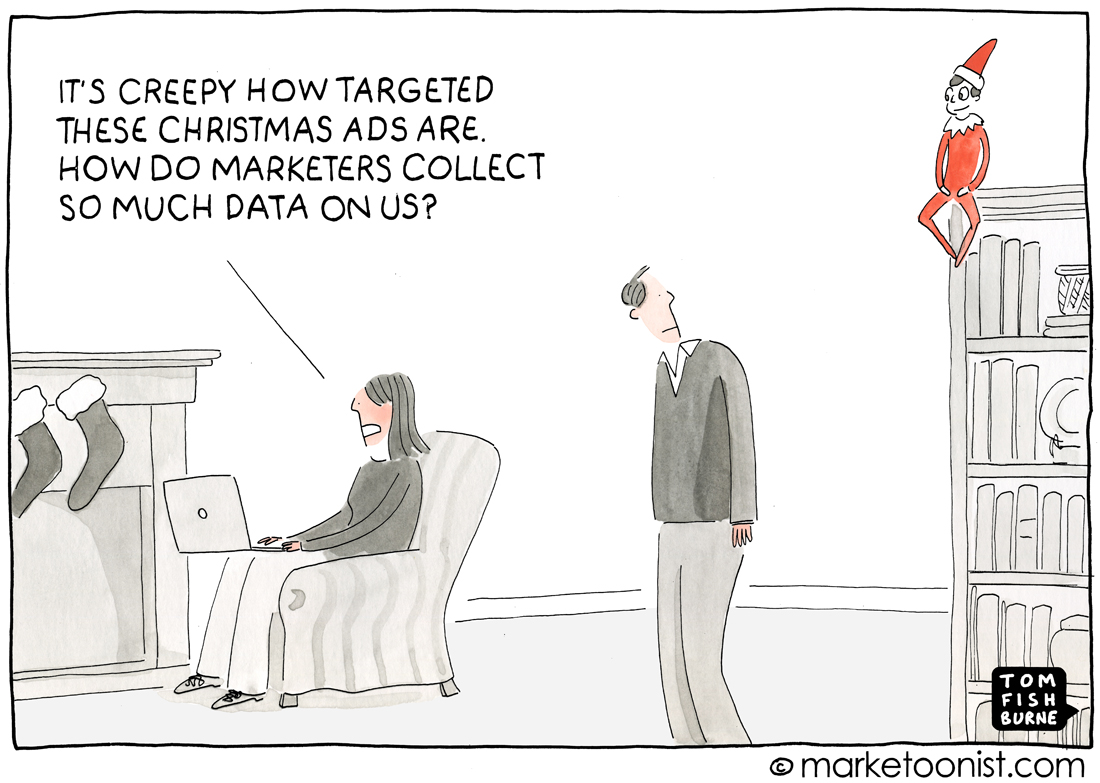
“Marketing with Personal Data” May 2014
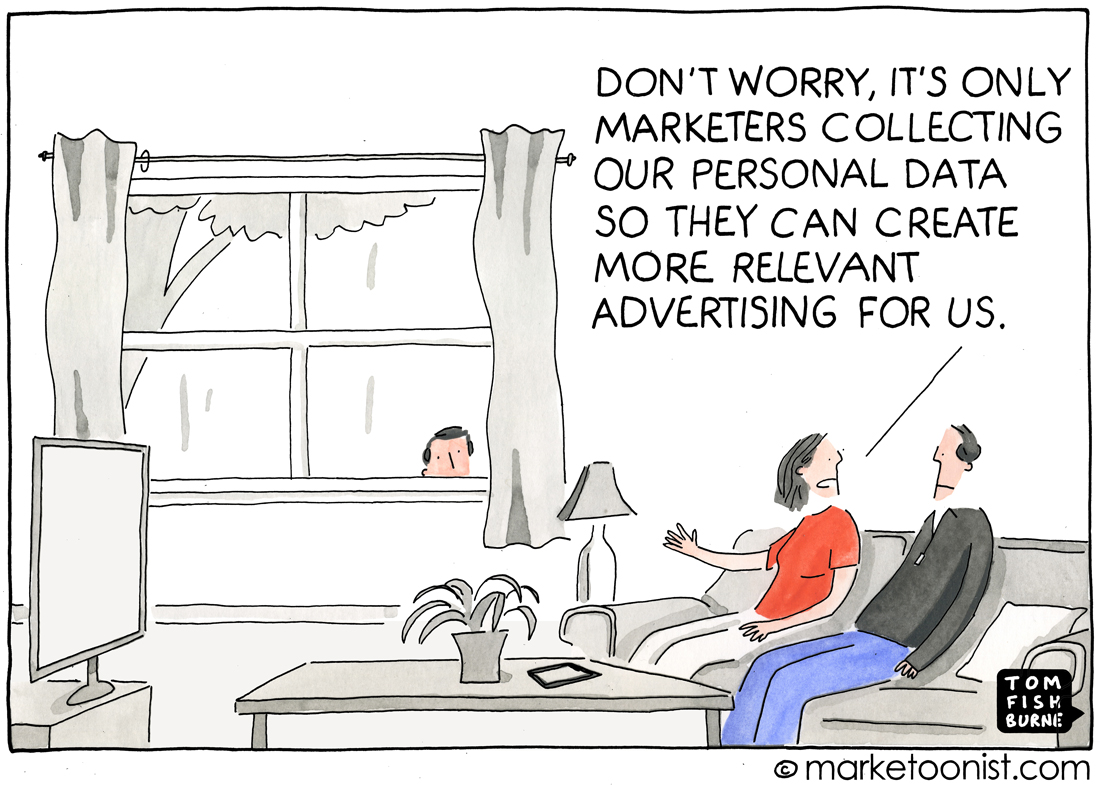
“The Future of Advertising” November 2017
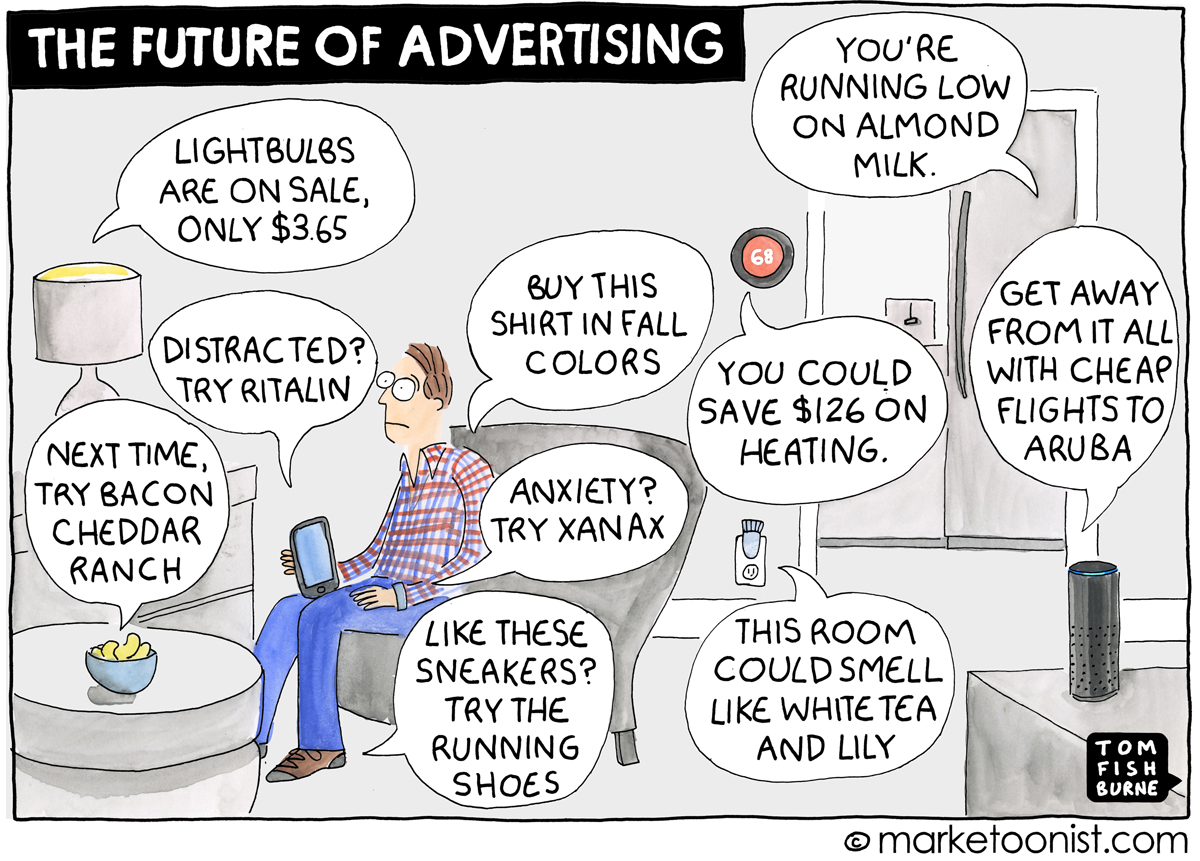
“Brand Reputation” October 2015
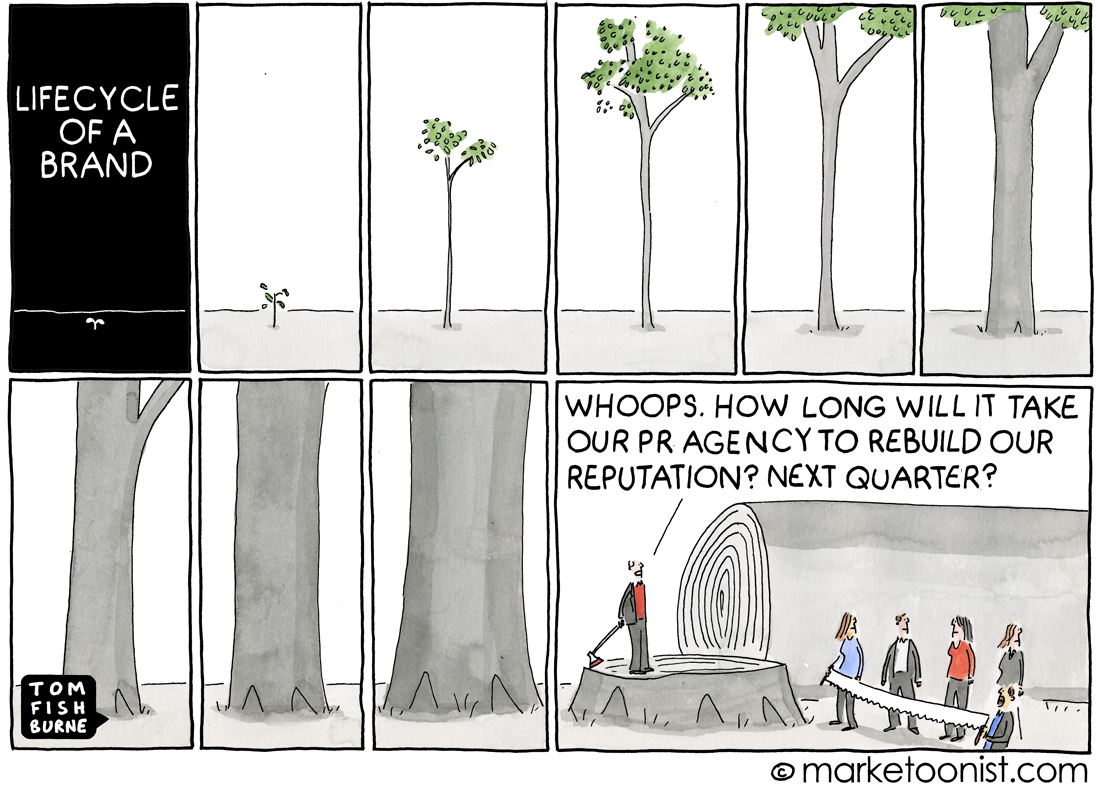
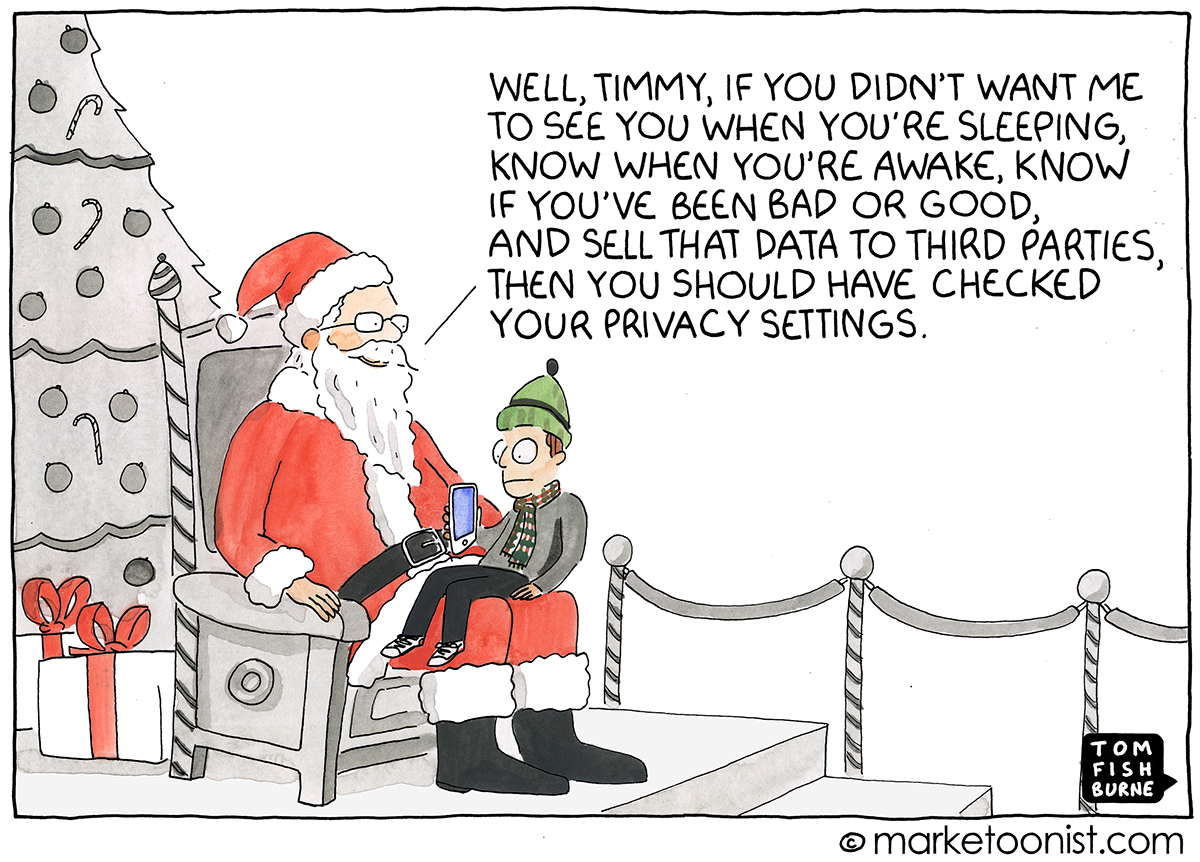

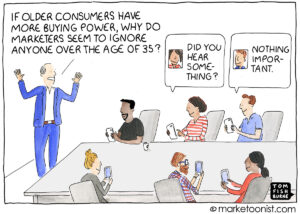

Bernie Weiss says
In days of yore, the butcher, baker and candlestick maker knew their customers’ preferences, and delivered personal service those customers appreciated. Now that marketers have simulated — but not replicated — personalization, through creepy, often unauthorized, privacy-busting spying, they shouldn’t be surprised that their efforts to provide “customized service” are scorned for being insincere, manipulative and creepy.